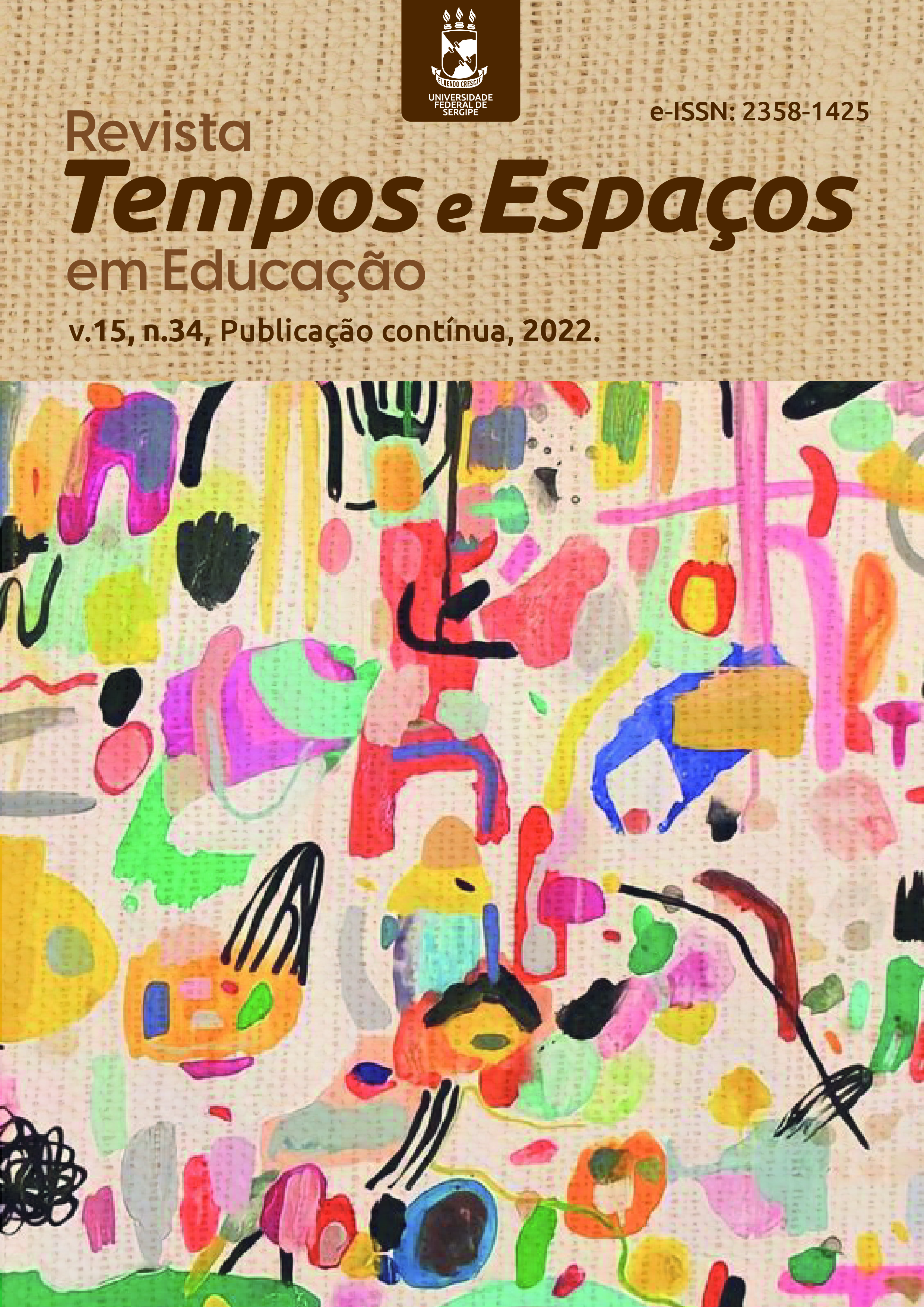Innovaciones lingüísticas en el proceso educativo de las universidades
DOI:
https://doi.org/10.20952/revtee.v15i34.17203Palabras clave:
pedagogía, innovaciones lingüísticas, formación profesional, lengua extranjera, tecnologías de la información y la comunicación, universidadesResumen
El objetivo principal del artículo es estudiar las principales características y perspectivas de las innovaciones lingüísticas en el proceso educativo de las universidades. Una característica distintiva importante de la etapa actual de desarrollo, caracterizada por la integración y globalización del sistema mundial en varias esferas de la vida y la actividad humana, es el proceso de expansión de la informatización. En las condiciones de la sociedad de la información, las modernas tecnologías de la información y la comunicación son una herramienta profesional vital, cuyo dominio determina la necesidad de una persona como especialista en el mercado laboral. Las nuevas condiciones económicas determinan el tipo de comunicación en el que una persona debe dominar al menos una lengua extranjera. El conocimiento práctico de una lengua extranjera es una de las características más importantes de un especialista de cualquier perfil. Por lo tanto, la educación lingüística ocupa una de las posiciones de liderazgo en el sistema general de educación y formación profesional de especialistas. Como resultado del estudio se analizó la pertinencia de introducir innovaciones lingüísticas en el proceso educativo de las universidades, así como los principales mecanismos de estos procesos
Descargas
Citas
Bakhov, I., Ryzhykov, V. And Kolisnyk, O. (2018). Leadership Abilities of a Military Manager, Professionalism of a Commander as the Guarantee of the Practice of Effective Activity of a Military Organization. International Journal of Engineering & Technology, 7(4.38), 45-49. DOI: https://doi.org/10.14419/ijet.v7i4.38.24318
Choa, C-C (1999) ‘Theory and Research: New Emphases of Assessment in the Language Learning Classroom’, in Egbert, J and Hanson-Smith, E (eds) (1999) CALL Environments Research, Practice and Critical Issues. Alexandria, Va.: TESOL.
Cole, M., Shelley, D. and Swartz, L. (2014), “Online instruction, e-learning, and student satisfaction: a three year study”, The International Review of Research in Open and Distance Learning, Vol. 13 No. 6, available at: www.irrodl.org/index.php/irrodl/article/view/1748/3123
Jandri, P., Knox, J., Besley, T., Ryberg, T., Suoranta, J., & Hayes, S. (2018). Postdigital science and education. Educational Philosophy and Theory, 50(10), 893–899. https://www.tandfonline.com/doi/abs/10.1080/00131857. 2018.1454000 DOI: https://doi.org/10.1080/00131857.2018.1454000
Kolgatin O., Kolgatina L. (2019) Information and communication technologies in education as a component of pedagogical science of Ukraine in the field of pedagogy theory in the 90s of the twentieth century" Information technologies and teaching aids, vol. 72, No 4, 41-54, DOI: https://doi.org/10.33407/itlt.v72i4.2798
Kovalevskaia, N., Gilyazeva, E. N., Lobazova, O. F., Duborkina, I. A., & Sokolova, A. P. (2021). Impact of digital services of hybrid cloud-based learning environment on efficiency of education. Revista Tempos E Espaços Em Educação, 14(33), e15297. https://doi.org/10.20952/revtee.v14i33.15297
Kryshtanovych, M., Kryshtanovych, S., Stechkevych, O., Ivanytska, O., & Huzii, I. (2020). Prospects for the Development of Inclusive Education using Scientific and Mentoring Methodsunder the Conditions of Post-Pandemic Society. Postmodern Openings, Vol.11. No.2, 73-88. https://doi.org/10.18662/po/11.2/160
Küçükgöz, M. (2021). The effect of paternalist leadership style of principals on the professional burnout of special education teachers. Revista Tempos E Espaços Em Educação, 14(33), e16089. https://doi.org/10.20952/revtee.v14i33.16089
Marek, M. & Wu, Wen-Chi & Chew, Chiou Sheng. (2020). Teacher Experiences in Converting Classes to Distance Learning in the COVID-19 Pandemic. International Journal of Distance Education Technologies. 19. 40-60. DOI: https://doi.org/10.4018/IJDET.20210101.oa3
Mayes, T and De Freitas, S (2004) Review of e-learning theories, frameworks and models. Available online at: www.jisc.ac.uk/whatwedo/programmes/elearningpedagogy/workshops/session1.aspx
Norkina, O.F. (2009). Valuable orientations of education in the context of European integration. Scientific Bulletin of Chernivtsi University, 433 Series "Pedagogy and Psychology", 92-103.
Robinson, K. (2015), Creative Schools: The Grassroots Revolution that’s Transforming Education, Viking Press, New York, NY.
Serdyukov, P., Subbotin, I. and Serdyukova, N. (2003), “Accessible, convenient and efficient education for working adults in a shorter time: is it possible?”, CAEL Forum and News, Vol. 26 No. 3, pp. 24-28.
Waters, A (2012) Trends and issues in ELT methods and methodology.English Language Teaching Journal 66/4: 440–449
Descargas
Publicado
Cómo citar
Número
Sección
Licencia
À Revista Tempos e Espaços em Educação ficam reservados os direitos autorais pertinentes a todos os artigos nela publicados. A Revista Tempos e Espaços em Educação utiliza a licença https://creativecommons.org/licenses/by/4.0/ (CC BY), que permite o compartilhamento do artigo com o reconhecimento da autoria.



